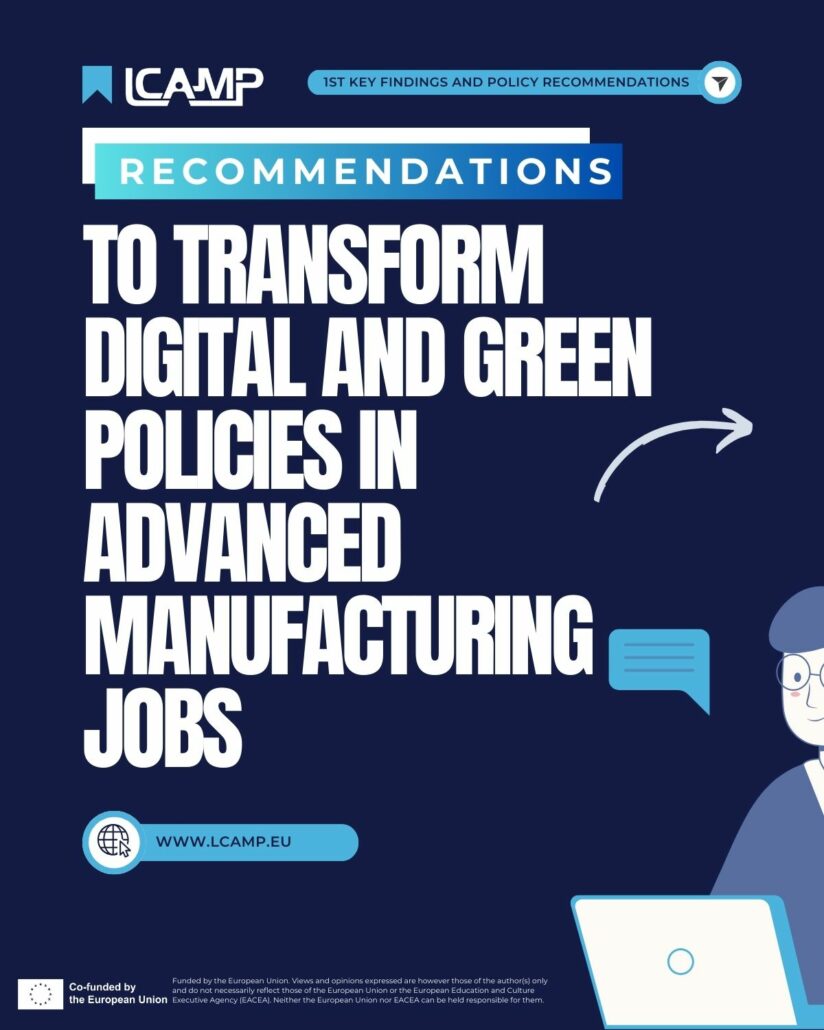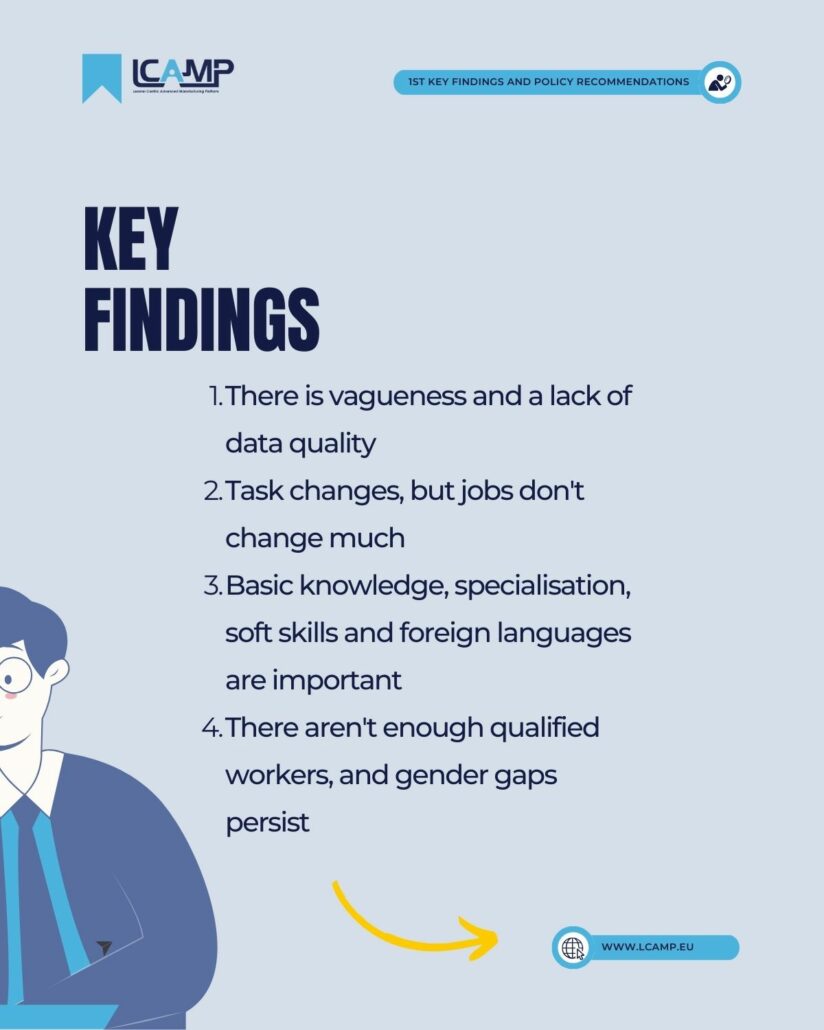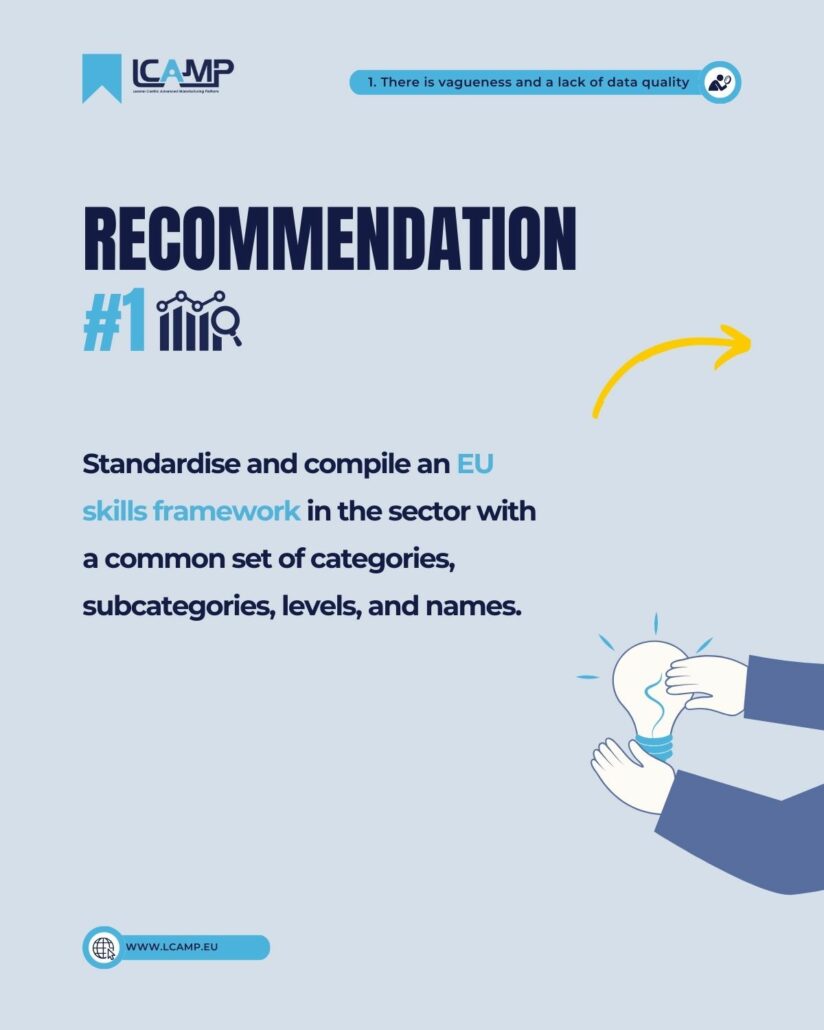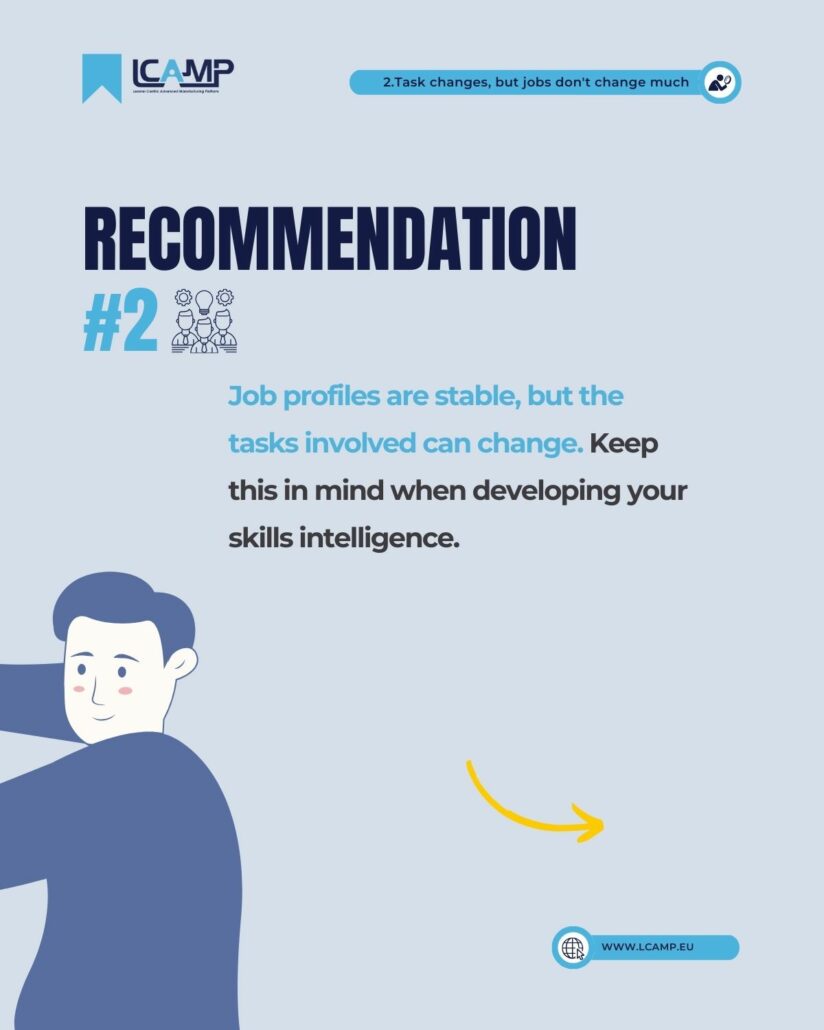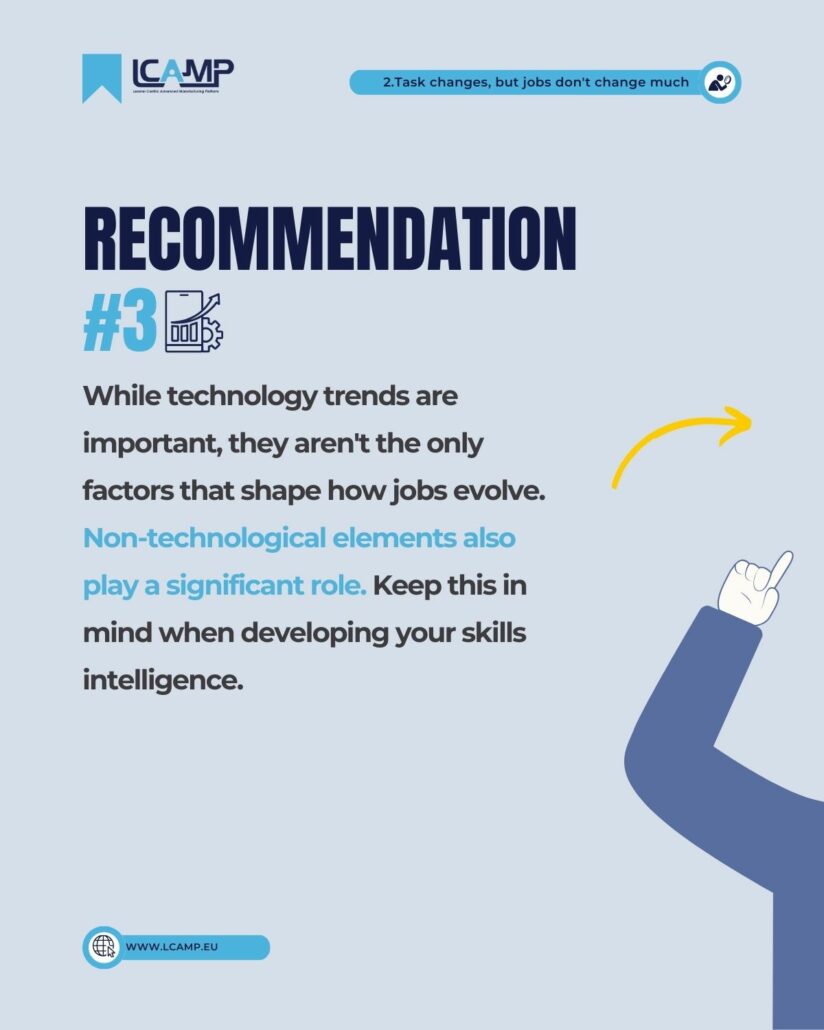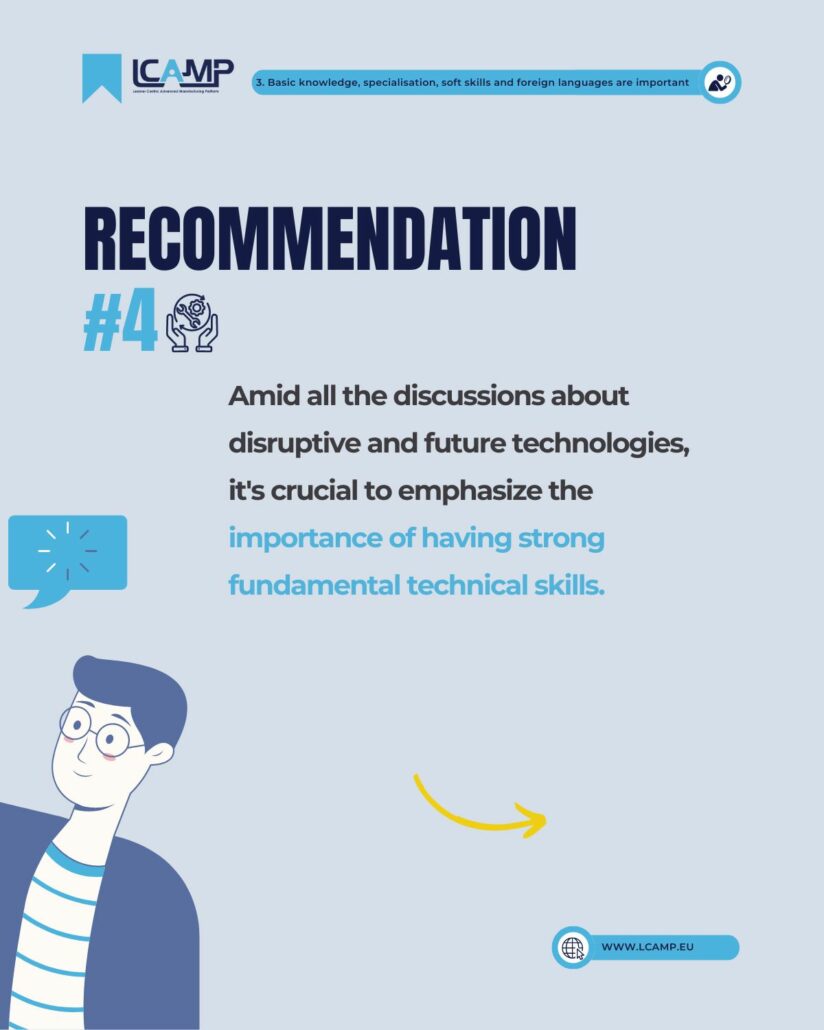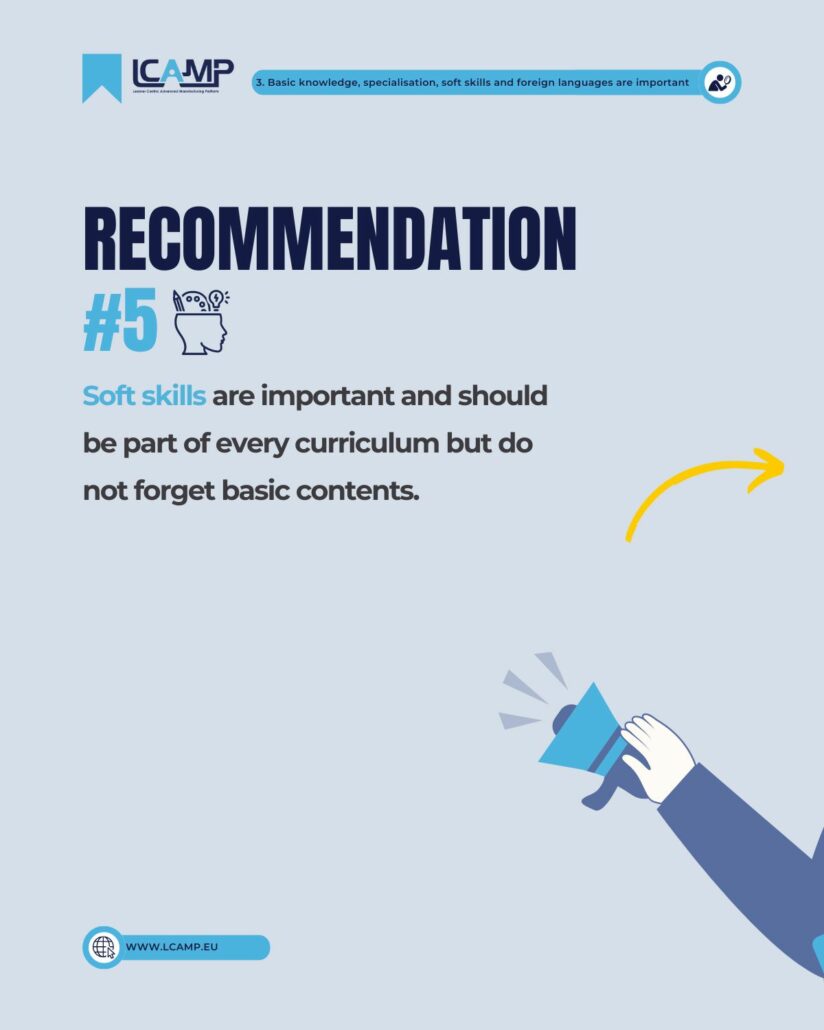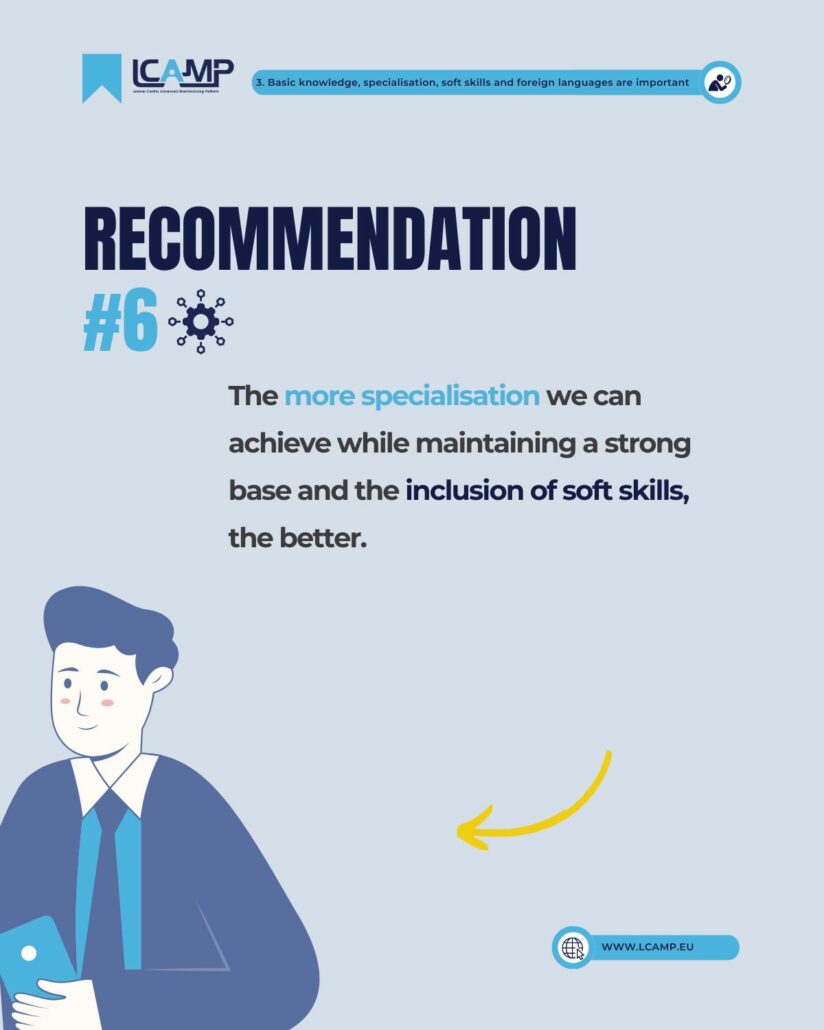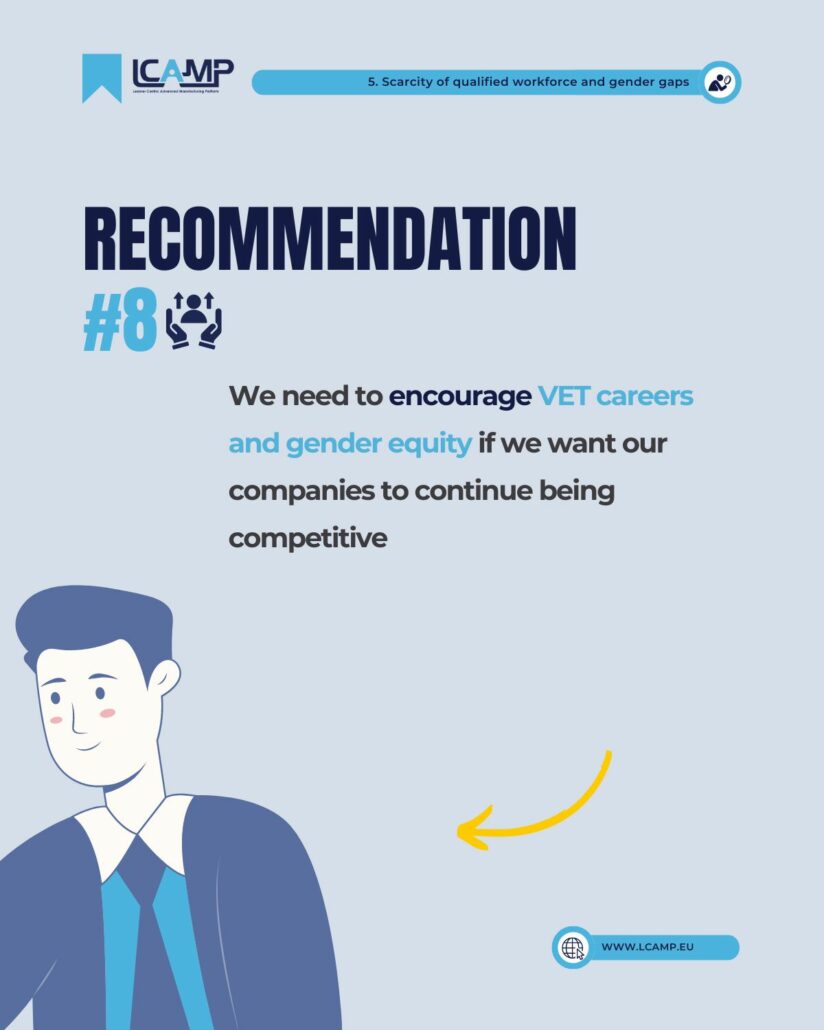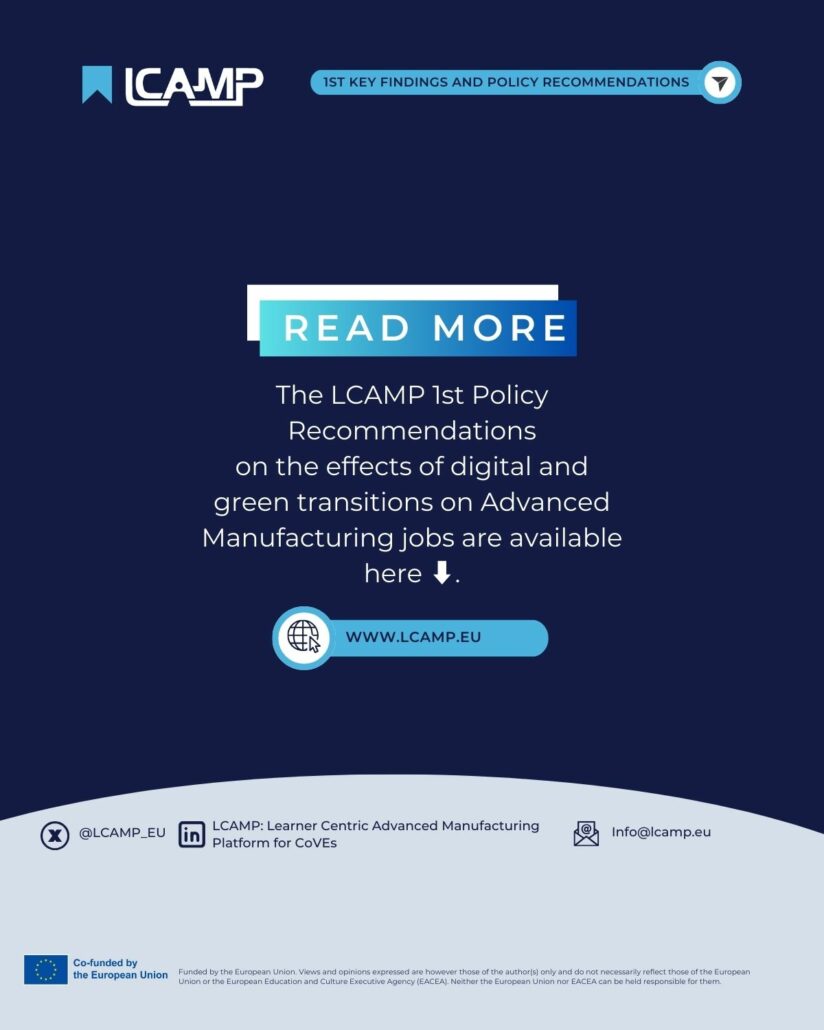The LCAMP Alliance has released its first policy recommendations addressing the impact of digital and green transitions on jobs in the advanced manufacturing sector. These recommendations highlight the importance of a skilled workforce, the need for high-quality data on required skills, and the value of a task-based approach that avoids a solely technological focus. The Policy Brief is rooted in LCAMP’s extensive research. For further details and related reports, please visit our website.

The LCAMP policy recommendations offer critical insights from LCAMP research into the effects of digital and green transitions on advanced manufacturing jobs. These insights aim to guide policymakers in effectively responding to the challenges posed by these transitions. While primarily targeted at the EU level, the recommendations are also applicable at national, regional, and even local levels. They are founded on three key principles:
- Relevance of a skilled workforce. Having the right skills is a vehicle for employability (at the individual level), prosperity (at the individual, company, and economic level), and innovation (both at the company and social level).
- Relevance of good quality data about skills. The response of governments and VET systems to skill needs depends on having the right data about skills.
- Relevance of a non-technologically deterministic task-based approach to jobs. The questions of relevance are how tasks change, which new tasks arise, and which concrete skills are needed to carry out these tasks within existing jobs.
Building on these principles, the LCAMP research team has formulated seven key recommendations. The findings underscore the necessity of high-quality data to address skill gaps. To achieve this, the LCAMP team advocates for the establishment of a comprehensive, common skills or competencies framework to eliminate ambiguity and improve data quality.
Furthermore, the analysis reveals that while job tasks may evolve, the core job roles remain relatively stable. Additionally, although technological advancements may appear to be transformative, non-technological tasks often play an equally critical role.
In today’s job market, fundamental technical skills continue to be crucial for employers. Companies are encouraged to invest in in-house training to ensure their workforce is equipped with these essential skills. Moreover, the integration of soft skills with technical expertise is vital for company success. Language proficiency, particularly in English, remains highly valued, making it essential to include language courses in VET curricula.
The advanced manufacturing sector, which includes many small and medium-sized enterprises (SMEs), faces challenges in competing with larger, more attractive companies for talent. Addressing the shortage of qualified workers and closing gender gaps are critical to attracting new, younger talent to the industry.
In conclusion, the LCAMP’s first policy recommendations provide a comprehensive framework for navigating the challenges posed by the green and digital transitions in the advanced manufacturing sector. As the sector continues to evolve, these strategies will be essential in ensuring that vocational education and training remain aligned with industry needs, thereby supporting sustainable growth and innovation in the workforce.
